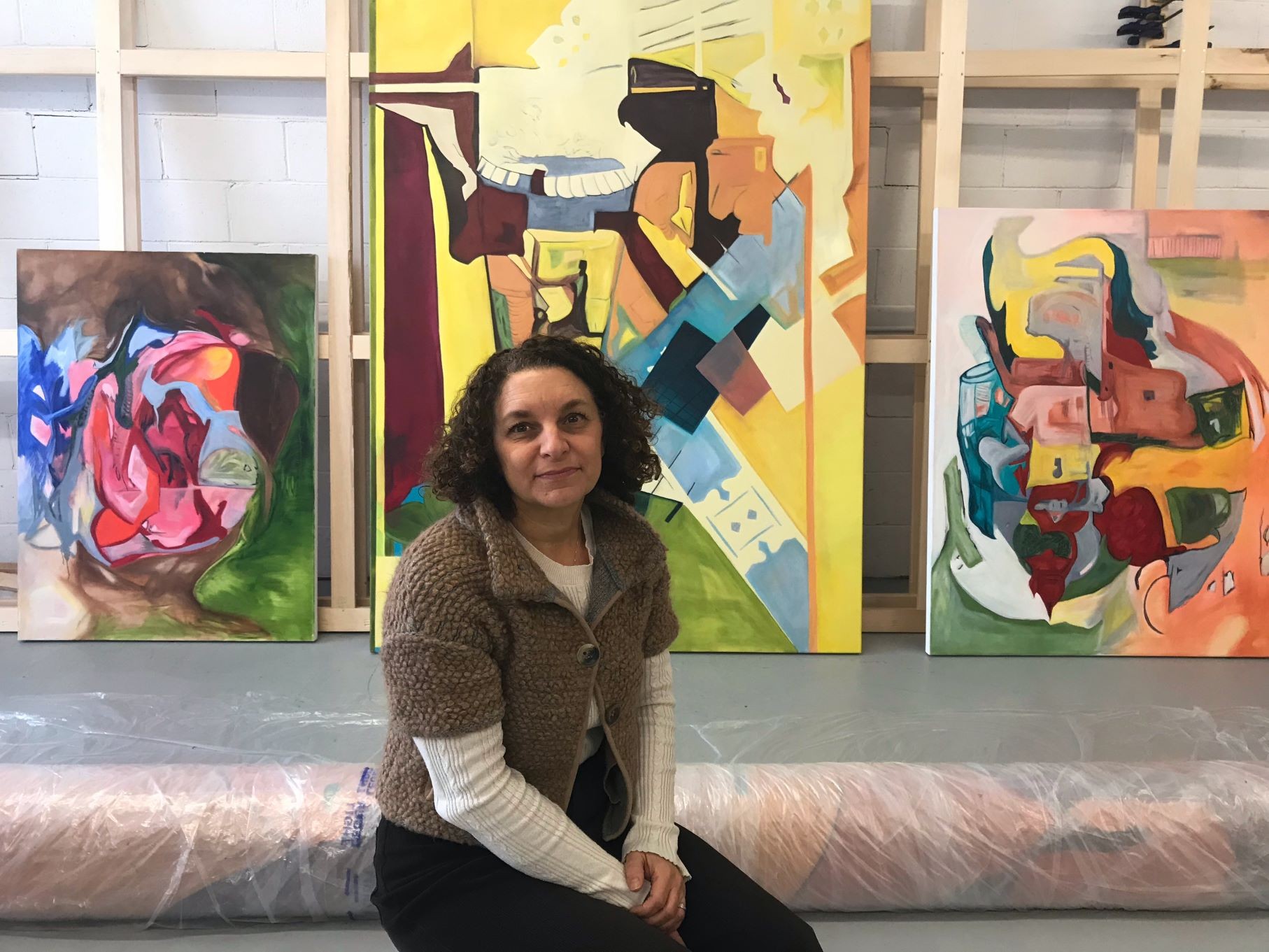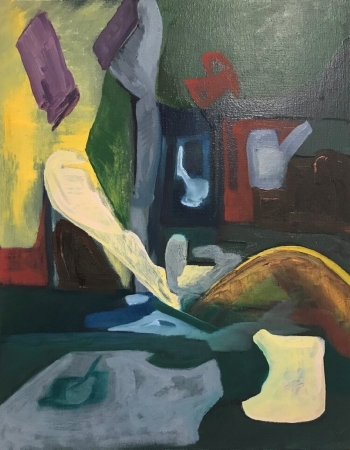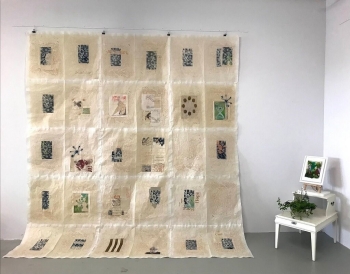At Concordia’s Faculty of Fine Arts, Di Meglio’s creativity — flashes of which had permeated her childhood — took root and flourished.
But it didn't happen overnight.
“When you’re from a different generation than your classmates, it’s not always easy to acclimate and make friends. There was some ageism there, which I’ve also had to face as an older, emerging artist. But overall, the environment at Concordia was transformative and challenged me in the best way.”
As an arts educator who worked with adults and children at a community centre in the Montreal suburb of Dollard-des-Ormeaux, Di Meglio initially saw teaching as her path.
It was her second major in the faculty’s Painting and Drawing program — completed after Di Meglio took two years off to care for her mother after a cancer diagnosis — that proved formative, however.
“I didn’t necessarily see myself as an ‘artist,’ so to speak, when I started at Concordia,” she says. “I had established a program for kids with special needs at the community centre where I taught and thought that was my future. But then one of my instructors said bluntly, ‘No, you’re a painter. You need to create.’”
Empowered with new purpose, Di Meglio did just that, rigorously developing her personal expression over time. There were occasional clashes, she says — her professors’ and fellow students’ ideas didn’t always accord with her own — but Di Meglio held firm. She graduated with top marks in 2021 at the age of 50.
“After second-guessing myself for a while, I finally decided to just be free,” she says. “To just create what’s in my mind, without trying to please anyone other than myself. It took time and wasn’t easy, but following my instincts has paid off.”
To explore Di Meglio’s studio is to understand why. The sunlit space includes in-progress and finished canvases — including a series inspired by a field school stint Di Meglio did in Jerusalem as a student — a vintage printmaking machine, rows of neatly-organized materials and a lounge.


 Rosi Di Meglio, BFA 21, at her studio in Montreal’s Garment District
Rosi Di Meglio, BFA 21, at her studio in Montreal’s Garment District
 From Di Meglio’s Jerusalem series: “Artist Colony,” oil, charcoal on cotton canvas, 2020-2021
From Di Meglio’s Jerusalem series: “Artist Colony,” oil, charcoal on cotton canvas, 2020-2021
 “An Heirloom,” Akua ink, black tea, pencil ink, nori paste on Japanese Kozuke white paper, 2021
“An Heirloom,” Akua ink, black tea, pencil ink, nori paste on Japanese Kozuke white paper, 2021


